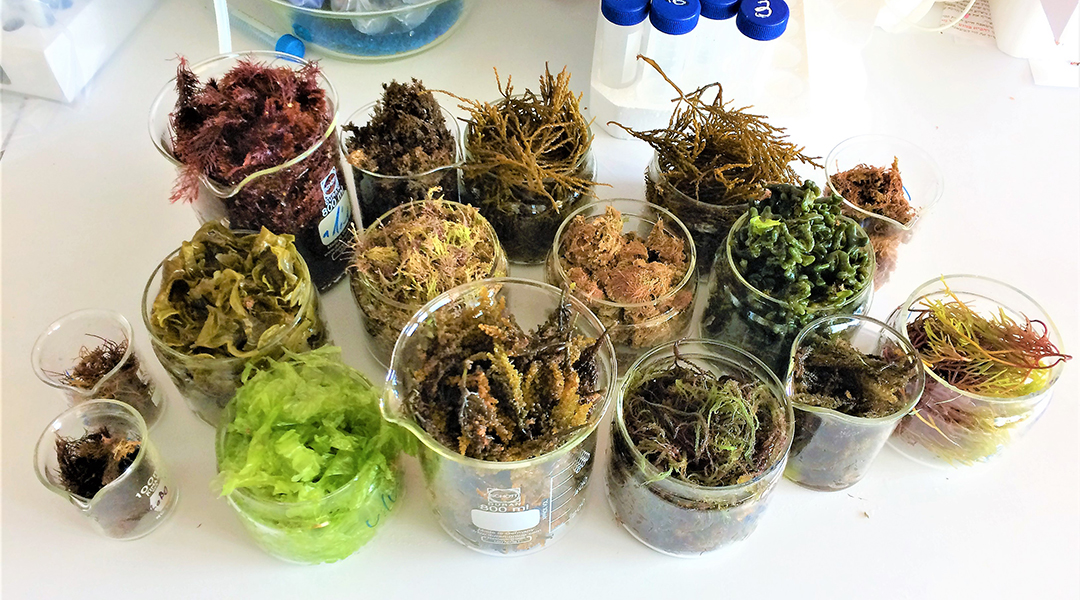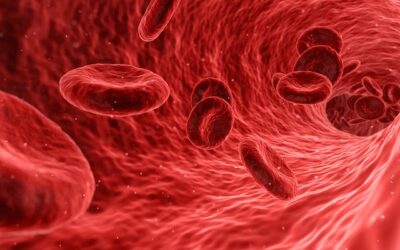The last few decades have seen us turn to our oceans as a source of sustainable materials ranging from food to medicine.
“As part of the efforts to find sustainable solutions for the great environmental challenges of our time, seaweeds present a true potential to play a crucial role in the future of food security coping with the world’s uprising challenges such as the climate crisis, pollution, and more,” explained Doron Yehoshua Ashkenazi, Marine Biotechnologist and Ecologist from Tel Aviv University.
Ashkenazi is a lead author of a recent study in which he and his colleagues explore a novel cultivation method that enhances the concentration of the valuable compounds in seaweeds. The study was carried out jointly between Tel Aviv University and Israel Oceanographic & Limnological Research, Israel.
Many studies have explored the beneficial biological molecules found in seaweeds. However, as these compounds are naturally present in small quantities, large quantities of seaweed biomass are required to obtain sufficient and consistent amounts of some active molecules.
Sustainable cultivation methods that enhance valuable compounds in seaweed are lacking and therefore limit the supply of compound-rich seaweed that can be used in medicine, food products, textiles, and cosmetics. This is the problem that Ashkenazi and colleagues sought to solve in their recent research.
Trees of the ocean
Seaweeds are often considered the “trees of the ocean” because like plants, they undergo photosynthesis — a process in which they absorb carbon dioxide from seawater to produce oxygen and energy. Each year, seaweeds are estimated to absorb 175 million tons of carbon, equating to about 10% of car emissions worldwide. Such carbon absorption is vital in the fight against climate change.
“Seaweeds are also extractive species, specialized in assimilating dissolved nutrients and pollutants, cleaning the natural aquatic environment and, thereby, contributing to maintaining the overall ecological balance in coastal ecosystems,” Ashkenazi said.
Furthermore, Ashkenazi also explained that seaweeds can be added to existing fish aquaculture farms to clean their effluent water, and in doing so the seaweeds becomes an additional crop. “This is why more and more countries are starting to encourage and subsidize seaweed aquaculture ventures,” he said.
With a growing global population, food security is also becoming a growing concern. To limit ecosystem destruction caused by using land to farm food, an alternative is to grow food sustainably in the sea. Aquaculture is the process of cultivating aquatic animals and marine plants for worldwide food production of which seaweed aquaculture is the fasted growing sector. Rich in vitamins, proteins and bioactive molecules for medicine and cosmetics, seaweeds are nutritious and can be farmed quickly and sustainably.
In parts of the eastern Mediterranean Sea, seaweeds have adapted to survive and thrive in stressful conditions, producing a variety of compounds that are known to have antioxidant, antibacterial, and antiviral properties. In addition, as part of their own protective mechanism, seaweeds produce natural sunscreens, which also have anti-inflammatory and anti-aging attributes.
Sustainable approach to enrich seaweed
To enhance the production of desired molecules, such as antioxidants and those that protect against ultra-violet radiation, the researchers manipulated the seaweeds growing environment. This included altering the saltiness of the water, nutrient concentrations, and radiation intensities.
A special technique where finfish are integrated with seaweeds was also used. The seaweed absorbs the excess nutrients and organic matter generated by the fish effluents or waste products and in doing so can increase its concentration of natural compounds.
“We were able to describe how each of the seaweed compounds [and] attributes can be manipulated and enhanced, where it can be practically adopted by the seaweed industry,” wrote the researchers. “We focused on valuable antioxidant and photoprotective biomaterials [sunscreens], however, possibly, other unique attributes of different seaweed species could be enhanced.”
“By using our cultivation approach, additional seaweed-derived bioactive compounds, such antibiotic, antiviral, anti-inflammatory, anti-diabetic, and anti-cancer substances, could potentially be manipulated and their concentrations increased,” said Ashkenazi.
Studies have explored the potential utility of such compounds, but more research will be needed to bring them to commercial markets.
The future of seaweed aquaculture
The researchers are the first to use this method to artificially stimulate compound production in seaweeds. By employing such approach, this research will not only help increase production of much needed food and valuable materials, but also do so in an environmentally friendly, non-polluting way by reducing the use of arable land, fertilizers and pesticides, or large amounts of freshwater.
However, major expansion of seaweed aquaculture, especially offshore, has challenges as Carlos Duarte and colleagues, researchers independent of Ashkenazi described in their paper published in Frontiers of Marine Science. Regarding expanding offshore seaweed aquacultures, they wrote, “[It is] not without challenges, including new engineering designs to withstand rough sea states as well as additional costs, and energy use, involved in transporting the crops and operators across greater distances.”
Now, Ashkenazi and colleagues have successfully demonstrated a new approach to enhance valuable compounds in seaweeds; looking forward, Ashkenazi wrote, “The next step is to upscale and implement our approach as well as to promote a large scale aquaculture initiatives by farmers and entrepreneurs.”
They hope the methodology will be taken up by farmers and added, “The technology can be applied as is, and in the near future.”
This method could be the key to further unlocking the ocean’s potential in providing us with a source of valuable antioxidants, sun protective compounds, nutritious foods, and bio-products, while offering substantial environmental benefits at the same time.
Reference: Doron Yehoshua Ashkenazi, et al., Enhancing Bioproducts in Seaweeds via Sustainable Aquaculture: Antioxidant and Sun-Protection Compounds, Marine Drugs (2022). DOI: 10.3390/md20120767
Feature image credit: Doron Yehoshua Ashkenazi, et al.

















